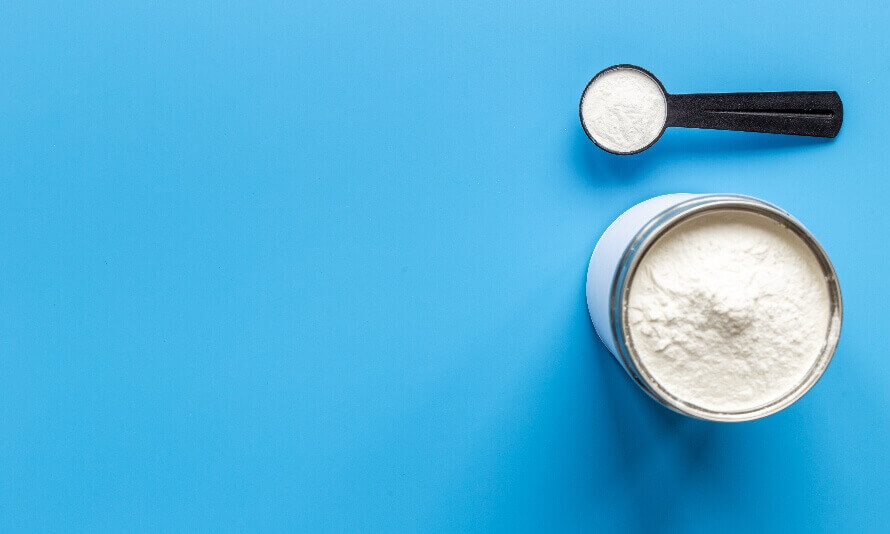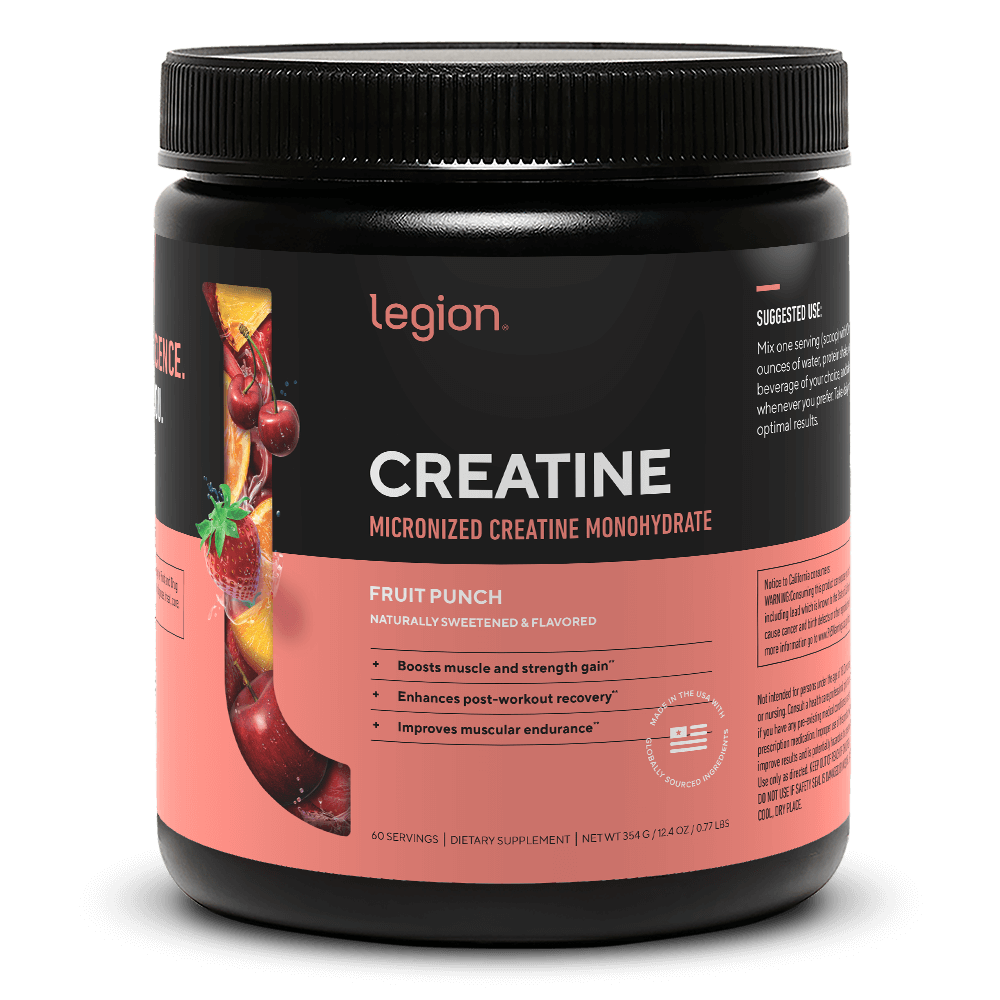No, creatine doesn’t cause hair loss.
Still, plenty of men worry it does.
The logic usually goes like this: Creatine increases dihydrotestosterone (DHT)—a hormone that can speed up hair loss in men who are genetically prone. So it must follow that one of creatine’s side effects is hair loss.
But that’s not how things actually work.
So, where did this idea come from? And does the claim have any merit at all?
Let’s discuss.
The Origin of the Creatine Hair Loss Theory

The idea that creatine and baldness are linked came from a small 2009 study published in the Clinical Journal of Sports Medicine. It found that male rugby players taking creatine saw their DHT levels jump by over 50% in just three weeks.
The researchers didn’t measure hair loss, but the internet didn’t care—that single study was enough to convince many that creatine causes baldness.
It’s not hard to see why, either. High levels of DHT can accelerate hair loss in men genetically predisposed to baldness, so the theory sounded just about believable enough to stick—at least if you didn’t look too closely.
Among more science-savvy folks, however, it didn’t hold much weight. They saw it for what it was: a short study with just 20 participants that didn’t measure hair loss—only hormone levels.
Even the spike in DHT wasn’t as meaningful as it seemed. Although levels rose while taking creatine, they stayed well within the normal range.
Does Creatine Cause Hair Loss?
In 2025, researchers at the Sport Sciences Research Institute of Iran—including Legion Scientific Review Board member Dr. Grant Tinsley—ran the first-ever study to see if creatine makes your hair fall out.
They gave 38 male weightlifters either 5 grams of creatine or a placebo every day for 12 weeks.
The scientists then tracked the weightlifters’ hormone levels and used state-of-the-art scalp scans to measure hair density, thickness, and scalp health.
The results showed creatine didn’t increase DHT, change testosterone, or affect hair in any meaningful way—no drop in hair count, no thinning, no follicle damage.
In short, the best evidence we have says creatine doesn’t make you lose your hair.
The Best Type of Creatine

Now that you know creatine doesn’t cause hair loss, you may be more inclined to take it. But which type should you go for?
Dozens exist, but creatine monohydrate is the most studied, effective, safe, and affordable—so there’s no good reason to choose anything else.
If you want to take creatine monohydrate, here are a few Legion products worth considering:
- Powder: Try our micronized creatine monohydrate powder for a pure and potent creatine monohydrate powder containing no artificial food dyes, fillers, or other unnecessary junk.
- Capsules: The same creatine comes in pre-measured capsules if you prefer a portable, mix-free option, t
- Gummies: If you want something tasty and chewable, our creatine gummies offer the full clinical dose in a sweet treat.
- Post-workout: Recharge combines 5 grams of creatine monohydrate with two other ingredients to boost growth and speed recovery.
The Bottom Line on Creatine and Hair Loss
Genetics, age, and hormone sensitivity drive hair loss—not your supplement stack.
And while DHT plays a role in male pattern baldness, creatine doesn’t appear to meaningfully affect it—especially not at the follicle level, where it actually matters.
No study has shown that creatine causes thinning, shedding, or baldness in men or women.
So if you’re losing hair, creatine probably isn’t the culprit—and cutting it won’t fix the issue.
Scientific References +
- van der Merwe, Johann, et al. “Three Weeks of Creatine Monohydrate Supplementation Affects Dihydrotestosterone to Testosterone Ratio in College-Aged Rugby Players.” Clinical Journal of Sport Medicine, vol. 19, no. 5, Sept. 2009, pp. 399–404, https://doi.org/10.1097/jsm.0b013e3181b8b52f.
- Lak, Mohammadyasin, et al. “Does Creatine Cause Hair Loss? A 12-Week Randomized Controlled Trial.” Journal of the International Society of Sports Nutrition, vol. 22, no. sup1, 23 Apr. 2025, https://doi.org/10.1080/15502783.2025.2495229. Accessed 24 Apr. 2025.
- Chumlea, W. Cameron, et al. “Family History and Risk of Hair Loss.” Dermatology, vol. 209, no. 1, 2004, pp. 33–39, https://doi.org/10.1159/000078584. Accessed 7 Dec. 2021.
- Ichihashi, H, et al. “Prophylactic Use of Chemotherapeutic Agent on Liver Metastasis.” Gan, vol. 63, no. 5, Oct. 1972, pp. 531–8, pubmed.ncbi.nlm.nih.gov/4674898/.
- Lolli, Francesca, et al. “Androgenetic Alopecia: A Review.” Endocrine, vol. 57, no. 1, 28 Mar. 2017, pp. 9–17, https://doi.org/10.1007/s12020-017-1280-y.










